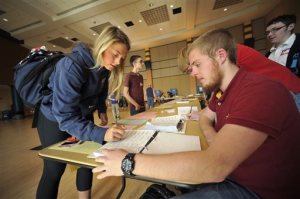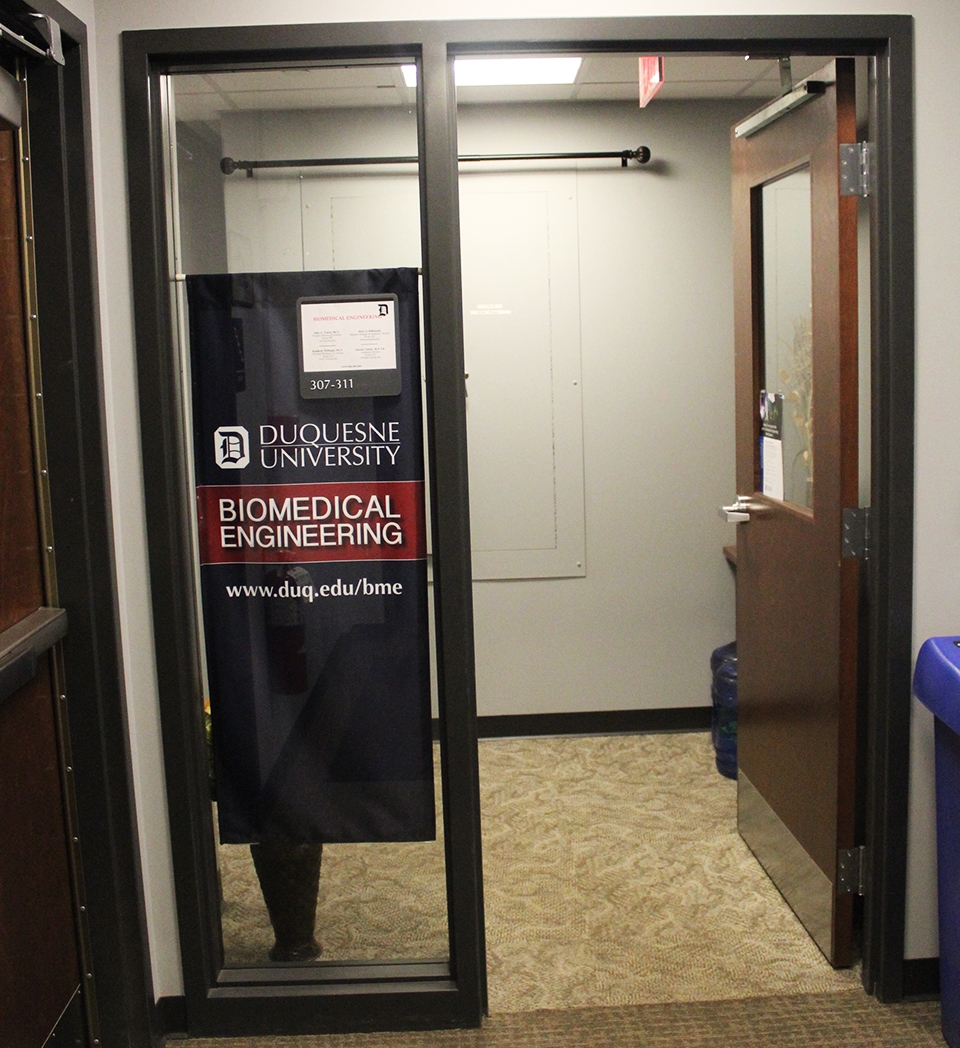
By Brandon Addeo | The Duquesne Duke
The number of ballots cast on Election Day Tuesday in Allegheny County was approximately 75,000 less than the number in 2010.
According to statistics from the Allegheny County elections department, less than 355,000 votes were recorded in Allegheny County in the election that saw Democrat Tom Wolf triumph over Republican incumbent Tom Corbett.
Low voter turnout in midterm elections is not uncommon. There are currently more than 880,000 registered voters in Allegheny County. Approximately 40 percent of those voted in Tuesday’s election.
Patricia Dunham, chair of Duquesne’s political science department, said it is important to vote in midterm elections because the results “impact our lives.”
“Policies will get passed or gridlock will continue,” Dunham said.
Sophomore sports marketing major Ashton Salopek said she did not vote because she felt she was not informed enough about politics to vote, but acknowledged that voting is “vital to society.”
“[Voting] is our right to choose who we want to lead us,” Salopek said. “So it’s very important.”
In the 2010 midterm elections, 427,318 people voted in Allegheny County, according to the Atlas of U.S. Presidential Elections. More than 450,000 voted in the 2006 midterms.
When Barack Obama won the presidency in 2012, more than 620,000 Allegheny County residents cast a ballot.
Statistics from the Center for Information & Research on Civic Learning and Engagement showed that 13 percent of people ages 18-29 voted in Tuesday’s election, a one percent increase from the 2010 midterms.
Dunham said the current generation of college students seeks to play a role in politics.
“I think they’re about as concerned [with politics] as previous generations,” Dunham said.
Students in the current generation are more interested in political volunteerism, as opposed to the more provocative methods of protesting and civil disobedience used by previous generations, according to Dunham.
Junior public relations major Thomas Hustava said he did not vote because he did not have the time to.
Hustava said Americans should exercise their right to vote.
“We have the privilege to do that in this country and we should be able to take advantage of that,” Hustava said.
College students participate more in presidential elections. A study by the Fair Elections Legal Network found that in the 2008 presidential election, 87 percent of students age 18-24 who were registered to vote cast ballots.
Freshman music therapy major Emma Weihe voted absentee for her home state of Ohio.
“I feel that it’s a big rite of passage,” Weihe said. “You are an adult when you get to vote.”
Weihe said students should be more concerned with politics.
“We are going to be controlling our country and I think that we should have a say in our own government,” Weihe said. “The more students who vote, the more we can make a difference.”



